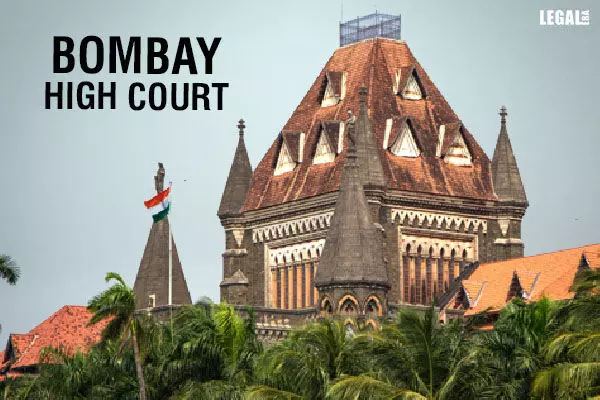- Home
- News
- Articles+
- Aerospace
- Artificial Intelligence
- Agriculture
- Alternate Dispute Resolution
- Arbitration & Mediation
- Banking and Finance
- Bankruptcy
- Book Review
- Bribery & Corruption
- Commercial Litigation
- Competition Law
- Conference Reports
- Consumer Products
- Contract
- Corporate Governance
- Corporate Law
- Covid-19
- Cryptocurrency
- Cybersecurity
- Data Protection
- Defence
- Digital Economy
- E-commerce
- Employment Law
- Energy and Natural Resources
- Entertainment and Sports Law
- Environmental Law
- Environmental, Social, and Governance
- Foreign Direct Investment
- Food and Beverage
- Gaming
- Health Care
- IBC Diaries
- In Focus
- Inclusion & Diversity
- Insurance Law
- Intellectual Property
- International Law
- IP & Tech Era
- Know the Law
- Labour Laws
- Law & Policy and Regulation
- Litigation
- Litigation Funding
- Manufacturing
- Mergers & Acquisitions
- NFTs
- Privacy
- Private Equity
- Project Finance
- Real Estate
- Risk and Compliance
- Student Corner
- Take On Board
- Tax
- Technology Media and Telecom
- Tributes
- Viewpoint
- Zoom In
- Law Firms
- In-House
- Rankings
- E-Magazine
- Legal Era TV
- Events
- Middle East
- Africa
- News
- Articles
- Aerospace
- Artificial Intelligence
- Agriculture
- Alternate Dispute Resolution
- Arbitration & Mediation
- Banking and Finance
- Bankruptcy
- Book Review
- Bribery & Corruption
- Commercial Litigation
- Competition Law
- Conference Reports
- Consumer Products
- Contract
- Corporate Governance
- Corporate Law
- Covid-19
- Cryptocurrency
- Cybersecurity
- Data Protection
- Defence
- Digital Economy
- E-commerce
- Employment Law
- Energy and Natural Resources
- Entertainment and Sports Law
- Environmental Law
- Environmental, Social, and Governance
- Foreign Direct Investment
- Food and Beverage
- Gaming
- Health Care
- IBC Diaries
- In Focus
- Inclusion & Diversity
- Insurance Law
- Intellectual Property
- International Law
- IP & Tech Era
- Know the Law
- Labour Laws
- Law & Policy and Regulation
- Litigation
- Litigation Funding
- Manufacturing
- Mergers & Acquisitions
- NFTs
- Privacy
- Private Equity
- Project Finance
- Real Estate
- Risk and Compliance
- Student Corner
- Take On Board
- Tax
- Technology Media and Telecom
- Tributes
- Viewpoint
- Zoom In
- Law Firms
- In-House
- Rankings
- E-Magazine
- Legal Era TV
- Events
- Middle East
- Africa
Bombay High Court: Group Of Companies Doctrine Applicable Despite Lack Of Non-Signatory Impleadment Prayer

Bombay High Court: Group Of Companies Doctrine Applicable Despite Lack Of Non-Signatory Impleadment Prayer
Justice R. I. Chagla of the Bombay High Court has ruled that the arbitral tribunal holds the authority to determine the binding nature of the arbitration agreement on a non-signatory and to include such a non-signatory in the proceedings.
The court ruled that the lack of a particular request for the inclusion of a non-signatory in a Section 11 application does not prevent the arbitral tribunal from applying the 'group of companies' doctrine.
The parties entered into a Memorandum of Understanding (MoU) that included an arbitration agreement. Respondent Nos. 1 and 2 initiated arbitration proceedings, leading to the Bombay High Court appointing a sole arbitrator. Seeking to include the petitioners in the arbitral process, Respondent Nos. 1 and 2 filed an application under Order 1 Rule 10 of the Code of Civil Procedure, 1908. However, Respondent No. 3 opposed this, contending that only the High Court could mandate such inclusion, not the Arbitral Tribunal. Despite this objection, the Tribunal issued notices to the petitioners. Subsequently, an interim award was communicated on January 5, 2024, following a hearing on January 2, 2024. Feeling aggrieved by this decision, the petitioners approached the High Court and filed a petition under Section 34 of the Arbitration and Conciliation Act, 1996 (Arbitration Act).
The petitioners argued that the Arbitral Tribunal does not possess inherent authority to implead a non-signatory, citing Cox and Kings Ltd. v. SPA India Pvt. Ltd., asserting that this case does not grant the Arbitral Tribunal the power to include non-signatories.
On the other hand, Respondent Nos. 1 and 2 contend that the Arbitral Tribunal's authority stems from the agreement between the parties and relevant legal provisions. They argue that non-implementation in a Section 11 application does not preclude the application of the 'Group of Companies' doctrine. Additionally, they assert that the Arbitral Tribunal has the discretion to consider the impleadment of non-signatories based on established judicial precedents.
The High Court observed that the Cox and Kings case did not suggest that the Arbitral Tribunal's authority to utilize the 'group of companies' doctrine depends on a specific request for the inclusion of non-signatories in a Section 11 application. It clarified that the absence of such a prayer does not negate the Arbitral Tribunal's ability to invoke the 'group of companies' doctrine. Therefore, the court held that the applicability of the 'group of companies' doctrine by the Arbitral Tribunal cannot be dismissed simply because there was no formal request for the impleadment of non-signatories in the Section 11 Application.
The High Court ruled that pursuant to Section 16 of the Arbitration Act, the Arbitral Tribunal possesses the jurisdiction to decide matters of jurisdiction, even pertaining to non-signatories to an arbitration agreement.
As a result, the High Court rejected the arbitration petition, concluding that there were no legitimate reasons under Section 34 of the Arbitration Act to overturn the arbitral award.



